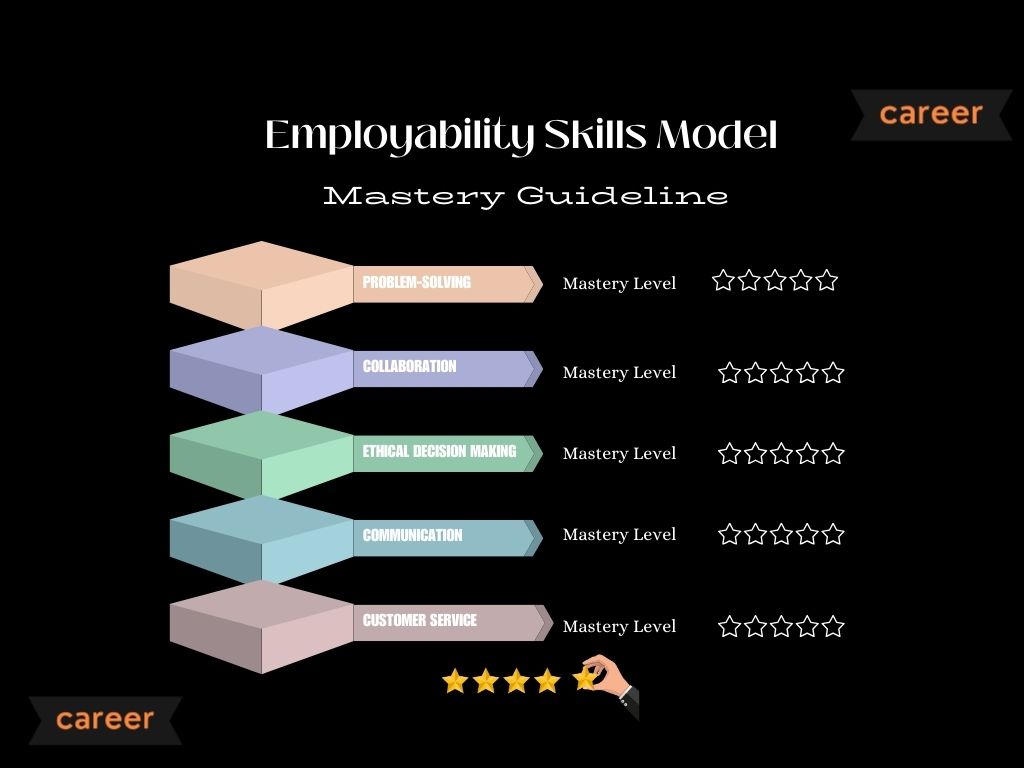  
|
Posted By Wally Luckeydoo,
Friday, September 6, 2024
|
Throughout August and September, high school teachers and students across the United States will return to school to attend classes. Unfortunately, some students nationwide will not be required to take the most important class that will follow them throughout high school and their lives as adults. Personal Finance is a course that teaches students about various topics they will use in the present and the future. Personal Finance covers different issues such as alternatives to college, banking, behavioral psychology, budgeting, careers, college consumer skills, credit, cryptocurrency, insurance, investing, taxes, and more. Personal Finance allows students to gain the abilities and skills necessary to be successful with money.
When I talk to other adults and tell them that I teach Personal Finance, they all tell me they wish they would have had the chance to take the class in school. Most adults feel like they would have been able to avoid some of the financial mistakes they have made, and I have the same sentiments on the subject matter. According to the 2024 Survey of the States from the Council for Economic Education, 88% of adults in the United States agreed their state should require a mandatory Personal Finance course to graduate. Eight in ten adults wish they would have been required to take at least one semester of Personal Finance before they graduated high school.
The good news is that the requirement to have Personal Finance is trending in the right direction. According to the National Endowment for Financial Education, 26 states require a mandatory standalone Personal Finance course to graduate high school. This means that state lawmakers and legislation are headed in the right direction, but it is still only 52% of the country, which means there is a lot of work to be done trying to get other states to create required standalone Personal Finance courses. You can track bills introduced in each state and see their progress using Next Gen Personal Finance’s bill tracker. Next Gen Personal Finance is a non-profit organization that advocates for financial literacy and helps transform the Personal Finance classroom through the curriculum and development of educators nationwide and beyond. Next Gen Personal Finance’s Mission 2030 is an effort to guarantee a Personal Finance course for at least a semester for all students in all states by the year 2030. The organization will even give tools to advocates seeking to change their school, district, or state through their advocacy toolkit.
As a veteran Personal Finance teacher, I tell all my students that my class is the most important class they will ever take. I truly believe that statement because students can transform their lives and the lives of future generations and even change their family trees through the information presented and the knowledge gained. I never had the opportunity or access to a Personal Finance course throughout my journey in education. I made many mistakes in high school, college, and as a young adult that could have been avoided if I had had the proper knowledge in middle school and high school. I learned various lessons about finance through the mistakes I made, but it does not have to be that way for everyone. Students in the education system today do not have to take a negative path when learning about finance. They can get all of the information they need in a Personal Finance class, absorb it, and put it into practice to become individuals who are successful with money. All students in the United States deserve access and a guarantee to become financially literate through a Personal Finance course.
Links to multimedia:
2024 Survey of the States https://www.councilforeconed.org/policy-advocacy/survey-of-the-states/
National Endowment for Financial Education https://www.nefe.org/news/2024/08/respect-legislative-intent-with-youth-financial-education-requirements.aspx
Next Gen Personal Finance Advocacy Toolkit https://www.ngpf.org/advocacy-toolkit/
Next Gen Personal Finance Bill Tracker https://www.ngpf.org/bill-tracker/
The intended audience for this article is K-12 classroom teachers, administrators, advocates of Financial Literacy, and state lawmakers in charge of education policy.
Biography
 Dr. Wally T. Luckeydoo is an award-winning educator located in Nashville, TN. He is the recipient of the 2024 Educator of the Year award for Tennessee Jump$tart. He advocates for Educational Technology and Financial Literacy. He is a veteran High School Personal Finance Teacher who regularly facilitates professional development and is passionate about helping students become the best versions of themselves. Dr. Wally T. Luckeydoo is an award-winning educator located in Nashville, TN. He is the recipient of the 2024 Educator of the Year award for Tennessee Jump$tart. He advocates for Educational Technology and Financial Literacy. He is a veteran High School Personal Finance Teacher who regularly facilitates professional development and is passionate about helping students become the best versions of themselves.
Connect with Wally: @drluckeydoo
Attached Thumbnails:
This post has not been tagged.
Permalink
| Comments (0)
|
  
|
Posted By NBEA,
Thursday, September 5, 2024
|
The start of a new school year is both exciting and daunting, especially for business teachers who are tasked with preparing students for the real-world skills they’ll need in finance, entrepreneurship, management, and marketing. So how can you kick off the year in a way that’s both effective and engaging? Here are some tips  to make your business classroom a place of innovation, collaboration, and real-world learning from day one.
1. Set Clear Expectations Through Syllabus Bingo
The syllabus can be one of the driest parts of any class, but it doesn’t have to be. Instead of a lecture, turn it into an interactive game. Try “Syllabus Bingo,” where students mark off key parts of the syllabus as you go through it, offering a small prize for the first to get a Bingo. You can include items like grading policies, due dates for major projects, and participation expectations. This not only keeps students engaged but ensures they’re absorbing essential course information. Studies have shown that interactive learning boosts retention and engagement in the classroom (Prince, 2004). You can also use Chatgpt by uploading your syllabus and ask it to create a bingo card based on items in the syllabi.
2. Incorporate Real-World Case Studies Early
The beauty of teaching business is that the world outside your classroom is your curriculum. Start the year by diving into a real-world business case study. For example, have your students analyze how a company like Tesla disrupted the automotive industry or how Apple’s marketing strategies continue to lead in brand loyalty. Case studies allow students to apply theoretical knowledge to practical situations, which is crucial in a business class. Plus, research shows that experiential learning helps students develop critical thinking and problem-solving skills (Kolb, 1984).
3. Launch a Class Stock Market Challenge
A great way to get students excited about finance is by launching a class-wide stock market simulation in the first week. Have students create mock investment portfolios and track their performance over the semester using real-time market data. Websites like MarketWatch offer free stock simulators, or you could set up your own with Google Sheets. This not only teaches students about the stock market but also emphasizes the importance of keeping up with current events—something business professionals must do daily. Plus, it's a friendly competition that can create some serious excitement in your classroom.
4. Bring in Guest Speakers Early
There’s no better way to make business concepts feel relevant than by bringing in guest speakers from various industries. Try to schedule one within the first month. Whether it’s a local entrepreneur or a corporate manager, their real-world experiences can inspire students and show them the potential career paths that a business education can lead to. Research by Stanford University highlights the benefits of exposing students to mentors and industry professionals, noting that it increases students' motivation and engagement in their studies (Darling-Hammond, et al., 2006).
5. Establish Classroom Roles Like “Chief Marketing Officer” or “Accountant”
In a business class, you have the unique opportunity to mirror the structure of an actual business. Assign students roles like “Chief Marketing Officer,” “Accountant,” or “Operations Manager” for class projects. Not only does this give students ownership of their learning, but it also fosters teamwork and leadership skills. This role-playing tactic is a form of project-based learning, which has been shown to boost both academic achievement and student engagement (Thomas, 2000).
6. Use the First Week to Build a Business Network
Encourage students to begin building their professional networks by setting up LinkedIn profiles or creating digital portfolios of their work. Show them how to connect with industry leaders, follow business influencers, and join relevant groups. This introduces students to professional networking early, making them more likely to carry this habit into college and beyond. According to the National Association of Colleges and Employers (NACE), over 80% of jobs are found through networking (NACE, 2020), making this an invaluable skill for your students’ future success.
7. End with a Vision Board for the Semester
Finally, let your students reflect on what they hope to achieve in your class. Have them create a vision board, either digitally or on poster paper, that outlines their goals for the semester. Whether they want to ace the course, start their own business, or understand how to balance a budget, this personal reflection will help them stay focused. Plus, vision boards are fun and creative ways to set intentions.
By incorporating these strategies, you’ll not only set the stage for a successful year, but you’ll also engage your students in practical, real-world business scenarios that will stick with them long after they leave your classroom.
---
References
- Darling-Hammond, L., et al. (2006). "Preparing Teachers for a Changing World: What Teachers Should Learn and Be Able to Do." Stanford University.
- Kolb, D. A. (1984). "Experiential Learning: Experience as the Source of Learning and Development."
- National Association of Colleges and Employers (NACE). (2020). "Job Outlook Survey."
- Prince, M. (2004). "Does Active Learning Work? A Review of the Research." *Journal of Engineering Education*.
- Thomas, J. W. (2000). "A Review of Research on Project-Based Learning."
Attached Thumbnails:
This post has not been tagged.
Permalink
| Comments (0)
|
  
|
Posted By Joe McClary CAE,
Thursday, August 22, 2024
Updated: Thursday, August 22, 2024
|
Misbehavior is a common challenge for high school educators, particularly in specialized subjects like business, where focus is essential. However, with effective strategies, you can minimize disruptions and foster a productive learning environment. Here are the top five keys to managing misbehavior in the high school business classroom. business classroom.
1. Set Clear Expectations from the Start
One of the most important steps in managing behavior is making expectations clear upfront. As the saying goes, "If the teacher doesn’t provide the structure, the students will—and it may not meet your expectations." Establish classroom rules and procedures from day one, and explain the rationale behind them. When students understand the importance of respect and participation, they're more likely to meet your expectations.
2. Be Consistent with Discipline
Consistency is crucial when enforcing rules. If consequences are applied inconsistently, students may become confused and test boundaries more often. Ensure that all students are treated fairly and that discipline is predictable. While consistency is key, flexibility can be necessary depending on the situation, but fairness should always prevail.
3. Build Relationships with Students
Positive relationships are a powerful deterrent to misbehavior. When students feel that their teacher cares about them and their success, they're more likely to stay engaged and behave appropriately. Get to know your students, show interest in their lives, and connect the course content to their experiences to build rapport and maintain a positive classroom environment.
4. Use Proactive Classroom Management
Prevent misbehavior before it starts by being proactive. Arrange the classroom to minimize distractions, use students' names often, and vary instructional methods to keep students engaged. Incorporate interactive activities, such as group projects or discussions, to make lessons more dynamic and reduce opportunities for disruption.
5. Focus on Positive Reinforcement
Rather than solely focusing on consequences, emphasize positive reinforcement. Recognize and reward good behavior through verbal praise or small incentives. When students see that their positive actions are noticed and appreciated, they're more likely to repeat those behaviors.
By implementing these five strategies—clear expectations, consistent discipline, relationship-building, proactive management, and positive reinforcement—you can create a structured and engaging business classroom where misbehavior is minimized, and learning thrives.
About the author
Joe McClary is a former business education teacher and is executive director of NBEA.
Attached Thumbnails:
This post has not been tagged.
Permalink
| Comments (1)
|
  
|
Posted By NBEA,
Wednesday, August 14, 2024
|
As stakeholder in the National Business Education Association (NBEA), you've dedicated your career to shaping the minds of future business leaders. Your passion for education has undoubtedly left an indelible mark on countless students, colleagues, and the broader business education community. But what if your impact could extend beyond your teaching years, ensuring that future generations continue to benefit from the opportunities and insights you've championed throughout your career?
You have spent a lifetime in business education—now is the time to strengthen your legacy by considering NBEA in your estate planning. By including NBEA in your will or establishing a charitable gift, you can continue to support the vital work of the association and ensure that your commitment to business education lives on for years to come.
Why Consider NBEA in Your Estate Planning?
- Leave a Lasting Legacy: Including NBEA in your estate plan allows you to create a legacy that reflects your lifelong dedication to business education. Your gift can be directed towards initiatives that were close to your heart during your career—whether that’s through scholarships, supporting professional development for educators, or funding innovative programs that advance business education.
- Support Future Educators and Students: Your contribution can provide essential resources for the next generation of business educators and students. By establishing a scholarship in your name, you can help aspiring business teachers achieve their dreams, ensuring that quality education continues to thrive.
- Promote Strategic Giving: Estate planning offers you the opportunity to make a strategic gift that aligns with your values. Whether you choose to leave a portion of your estate to NBEA, create a trust, or explore other giving options, you can make a significant difference in the future of business education.
- Tax Deductible Contributions: As a 501(c)(3) organization, NBEA ensures that your gifts are tax deductible to the fullest extent allowed by law. This means that not only will your contribution make a lasting impact, but it can also provide potential tax benefits for you and your estate.
- Personal Fulfillment: Knowing that your legacy will continue to inspire and support others can bring a deep sense of fulfillment. Your thoughtful planning today can ensure that the causes you care about most will continue to flourish long after you’re gone.
How to Get Started
Estate planning is a deeply personal decision, and NBEA is here to help you explore the options that best align with your goals and values. Whether you're interested in setting up a scholarship, contributing to a specific program, or making a general bequest, NBEA can work with you and your financial advisors to ensure that your legacy is honored in the way you envision.
By including NBEA in your estate planning, you’re not just giving back; you’re investing in the future. Your gift will ensure that the principles of business education that you’ve championed throughout your career will continue to be taught, learned, and valued by future generations.
Strengthen Your Legacy
You have spent a lifetime in business education—now is the time to strengthen your legacy. Consider making a lasting impact through strategic giving to NBEA. Together, we can ensure that your passion for education lives on, empowering future educators and students to thrive in the world of business.
For more information on how to include NBEA in your estate planning, please contact our office. We would be honored to help you create a legacy that reflects your lifelong commitment to business education.
This post has not been tagged.
Permalink
| Comments (0)
|
  
|
Posted By NBEA,
Monday, August 12, 2024
|
As a business educator, you wear many hats—teacher, mentor, advisor, and often administrator. Balancing these roles while maintaining a high level of instruction  can be challenging. Here are ten tips to help you save time in your day, allowing you to focus on what you do best: educating and inspiring the next generation of business leaders. Best of all, these tips will help you stay engaged with your professional community, like the National Business Education Association (NBEA), without sacrificing time.
1. Utilize Pre-Made Lesson Plans
One of the most time-consuming tasks is creating lesson plans from scratch. Instead of starting from zero, leverage pre-made, high-quality lesson plans available through professional organizations like NBEA. This not only saves you time but also ensures that you’re delivering top-notch content.
2. Automate Grading with Technology
Consider using automated grading tools and apps to handle routine assessments. Tools like Google Forms with self-grading quizzes can significantly cut down on grading time, allowing you to focus more on student engagement and less on paperwork.
3. Batch Your Tasks
Grouping similar tasks together, such as grading, lesson planning, or responding to emails, can increase your efficiency. By focusing on one type of task at a time, you reduce the mental load of constantly switching between different activities.
4. Leverage Professional Networks
Connecting with other educators through NBEA’s network can provide you with resources, advice, and ideas that save you time. Rather than reinventing the wheel, tap into the collective wisdom of your peers.
5. Use a Planning App
Digital planners and apps like Trello, Todoist, or Google Calendar can help you stay organized and on top of your tasks. By planning your day efficiently, you can ensure that you’re making the best use of your time.
6. Delegate When Possible
Don’t be afraid to delegate tasks to students or teaching assistants. Whether it’s managing classroom materials, preparing bulletin boards, or organizing classroom events, delegation can free up your time for more critical tasks.
7. Streamline Communication
Use tools like Remind or Google Classroom to streamline communication with students and parents. These platforms allow you to send updates, assignments, and reminders in bulk, reducing the need for individual emails or calls.
8. Prioritize Self-Care
Remember that your well-being is essential for productivity. Incorporate short breaks, mindfulness practices, or quick exercises into your day to recharge. A well-rested and focused teacher is far more effective and efficient.
9. Invest in Professional Development
Attending NBEA’s webinars or annual convention might seem like a time investment, but the time you save by learning new strategies, tools, and techniques will pay off in the long run. Professional development is key to working smarter, not harder.
10. Create a Resource Library
Over time, build a digital library of resources, lessons, and activities that you can reuse or adapt. This library can save you countless hours in planning, and you can easily share it with colleagues through NBEA’s resource sharing platforms.
---
Incorporating these strategies into your daily routine can significantly reduce the time spent on administrative and planning tasks, allowing you to focus more on teaching and less on the grind. As a member of the NBEA, you’ll have access to a treasure trove of resources, professional networks, and development opportunities that can make your teaching career more efficient and rewarding.
If you’re not already a member, consider joining the NBEA to take full advantage of these time-saving tools and support networks. Together, we can make business education both impactful and manageable.
---
Feel free to modify or expand on these points to better align with your audience and goals.
Attached Thumbnails:
This post has not been tagged.
Permalink
| Comments (0)
|
  
|
Posted By McKale Jones,
Friday, August 2, 2024
|
Can you relive the moment of being in 12th Grade with 3 months to go before graduation? You have participated in many job fairs and classroom explorations  throughout your educational journey, including career skill surveys. For many years, education departments and school districts have been constantly designing workforce preparation blueprints to ensure our students are prepared for careers with the ability to apply effective career skills. Could it be effective for education departments and school districts to equip our students with an understanding of the difference between a job and a career? Perhaps educators and school stakeholders can implement engaging ways for students to be prepared using more visual instructional methods to determine what specific career skills are needed depending upon the desire.
Many instructional methods provide visual career skills, whether it is in secondary or postsecondary. One instructional strategy that I have used in my classroom that helps students model career skills is Game-Based Learning Simulations. As an educator, many of you might be thinking of how expensive some of the career simulations may be. Many of the simulations are budget-friendly, and many students already have access. For example, there is Madden 24. It is an Electronic Arts Company that produces sports games on platforms such as Sony PlayStation, Microsoft Xbox, and other platforms. It offers many visual career opportunities, such as experiencing owning a team franchise. According to Electronic Arts, they experienced a 6% increase and a double-digit growth in weekly average users. This simulation game can be used as a final capstone or final exam project for students who may be interested in the Sports Management career field. The chart below displays some career skills used while engaging in the Franchise Mode.
Is it possible that this is an alternative approach to preparing our students whether secondary or college with effective and everlasting employability skills? Ask yourself as an educator, “Can I use Employability Skills Using Game-Based Learning as a tool for students to visually display their employability skills within my classroom?”
Contributor
 Mckale Jones
Georgia CTAE Business Teacher
Clarke County School District (Athens, GA)
Email: jonesm3@clarke.k12.ga.us
Mckale Jones has 11 years of classroom experience with the focus on students applying daily Business Technology Content lessons within society. His tenure in the classroom includes multiple hands-on instructional strategies that produce a high level of engagement from all students. He has presented at the Georgia's CTAE Field of Dreams Conferences, the 2024 National Business Education Conference, SREB Conference, and other conferences by providing CTAE/CTE Pathway Teachers with cutting-edge Game-Based Learning Strategies that will ignite students’ curiosity about career development skills. Mr. Jones believes that learning connects to a student's career desires and provides an opportunity for the student to define their career path.
Attached Thumbnails:
This post has not been tagged.
Permalink
| Comments (1)
|
  
|
Posted By NBEA,
Thursday, August 1, 2024
|
Learning the functions of management, how to be a strategic manager, and the importance of managerial soft skills are foundational skills for students to develop as they begin to build successful managerial careers. These skills are at the heart of the new edition of Principles of Management by Robert L. Dansby and Karel Sovak from G-W Publisher. This comprehensive textbook and digital resource present a framework for students to learn the five basic functions of management: planning, organizing, staffing, leading, and controlling. Throughout, the text underscores the importance of employability skills and presents over 20 career possibilities for students to consider in management, from management analyst to social media manager. as they begin to build successful managerial careers. These skills are at the heart of the new edition of Principles of Management by Robert L. Dansby and Karel Sovak from G-W Publisher. This comprehensive textbook and digital resource present a framework for students to learn the five basic functions of management: planning, organizing, staffing, leading, and controlling. Throughout, the text underscores the importance of employability skills and presents over 20 career possibilities for students to consider in management, from management analyst to social media manager.
Business teachers can bring management to life with unit-opener case studies that present real workplace challenges. This aspect is critical for students as they envision themselves in positions of management. Students explore administration, business, and management roles that interest them, increasing their potential for landing a rewarding and enjoyable career. This connection between management theory and application is further expressed through engaging animations that include assessments to reinforce concepts.
Portfolios are a key feature of career exploration, allowing students to display their skills and experience, but also to show professional growth and highlight specific features of their personal career aspirations. Throughout, students will develop their own personal portfolio, with key features of their growth in management and administration roles. Portfolio development guidance allows for personal and professional use when students explore volunteer, education and training, and career opportunities. At the end of the course, students will have built a complete portfolio to support their job search that includes recommendation letters, writing samples, certificates, and more, as evidence of their abilities.
Feeling confident and motivated in their ability to build a career, students will be able to articulate functional, transferable, and soft skills they’ve learned throughout a management course with Principles of Management. Students will develop foundational skills and clear career plans as they work to achieve their career goals immediately after high school and set higher goals for the future.
NBEA newsletter subscribers can use Promo Code NBEA24POM at www.g-w.com/preview to receive a free digital preview
G-W Publishers is an NBEA Associate Member. For more information on how you can share your information with educators, view our associate membership options.
Attached Thumbnails:
This post has not been tagged.
Permalink
| Comments (1)
|
  
|
Posted By Joe McClary CAE,
Wednesday, July 24, 2024
|
NBEA's Executive Director, Joe McClary, testified before two distinguished governmental groups on Friday, reviewing the merger terms between two of the world's largest banks, Discover and Capital One. McClary said, "We are honored to contribute to the body of knowledge these regulators have regarding the role these banks play in education, particularly business education and financial literacy. NBEA focused the public comments available here to underscore the importance of the commitments made by these banks to social responsibility and the financial literacy of the next generation." Discover pledged more than 7.5 million dollars in funds to help provide financial literacy resources to teachers FREE. NBEA's teachers can take advantage of these free resources that can be plugged into any curriculum they use. Members can review the resources at NBEA.org/Pathway.
Attached Files:
This post has not been tagged.
Permalink
| Comments (0)
|
  
|
Posted By NBEA,
Wednesday, May 15, 2024
|
While NBEA needs every dues paying member so we can meet our obligations to our members, we understand not everyone can afford dues. That is why we are commited to making a limited number of free membership available to those who need it. Our philosophy that anything worth having doesn't usually come free, so we ask for something simple to add value to NBEA through your participation. Here are some ways to earn a free membership:
- Partner with NBEA to deliver a 45-minute professional development webinar for your peers. Submit your proposal.
- First-year teachers get a free membership if they attend one of our "New Teacher's Survival Guide" Events. There are always approximately two of these events on the schedule at any time.
- Join the Community.NBEA.org and participate in interactions and sharing. Promotions, scholarships, freebies, and more are posted here regularly. Joining the community doesn't guarantee a free membership but NBEA regularly extends promotions for potential members.
Like any other business or household, NBEA depends on dues paying members to support the work of the association. But, we don't want that to be the sole hurdle for joining.
This post has not been tagged.
Permalink
| Comments (0)
|
  
|
Posted By Joe McClary CAE,
Tuesday, May 7, 2024
|
The National Business Education Association (NBEA) is continuously evolving, and we are thrilled to share various enriching developments with you. Our recent accomplishments include launching new events, unveiling a state-of-the-art library, fostering an online community, and organizing highly-rated conventions. These initiatives are designed to enhance our organization and provide direct benefits to you, our valued members. We pride ourselves on celebrating these advancements; however, we also understand the importance of transparency in maintaining your trust and confidence.
To further our commitment to openness, we are excited to invite you to the "Behind the Scenes at NBEA - A Networking Event." This gathering will offer a unique opportunity to connect with peers, engage in meaningful dialogue with fellow business educators, and gain an in-depth understanding of our financial operations, membership statistics, and more.
The landscape of education associations is notably challenging. Over the years, NBEA, like many other associations, has experienced fluctuations in membership. From a peak of nearly 15,000 members three decades ago to a current membership of 2,230 full members, the shift has been significant. Moreover, we have over 16,500 guests who maintain a connection with our association. This trend of decline is not unique to business educators but is evident across numerous educational groups.
After extensive research over four years, I've identified several factors contributing to this change. These include a broader societal shift away from altruism, the overwhelming availability of alternative educational resources online, and a general lack of coordinated effort among some state organizations to align with national strategies and provide a unique, non-competing value proposition. In response, NBEA has substantially progressed in restructuring our regions to foster a more unified and effective business education ecosystem. All but one NBEA region has restructured its governance to serve its educators better. This is an exciting and positive change.
NBEA is indeed charting a path toward a more collaborative and impactful future. However, there is still work to be done, and we need your involvement to continue making strides. How can you strengthen NBEA and set a standard for other educational associations?
- Join us and support your association through your membership dues.
- Actively participate in our events and initiatives.
- Utilize the association as a platform to refine your leadership skills.
- Patronize our sponsors. This newsletter includes ads from vendors who want to inform you about their products. Even if you aren't in a market to buy, take a few moments to click and learn. This tells our vendors that NBEA is a valued resource for exposing their products and services. They, in turn, invest back in you with their financial support.
- Provide feedback on how NBEA can offer you and your fellow educators unique value.
In summary, while NBEA is proud of our achievements and the steps we've taken toward enhancing our organization, we acknowledge the challenges ahead and our members' critical role in our success. We can build a stronger, more effective NBEA together through your active participation and continued support.
This post has not been tagged.
Permalink
| Comments (1)
|
|
 Immediate Past President
Immediate Past President 2025-2026 President
2025-2026 President President-elect
President-elect